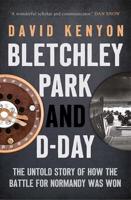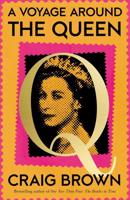Publisher's Synopsis
One of the few RAF aircrew to play a central part in two of the Second World War's most momentous events, the Battle of Britain and D-Day, Cyril 'Frank' Babbage was a survivor. He wasn't just an immensely skilled pilot; he was also blessed with extraordinary good fortune. Shot down three times, once by a Luftwaffe Experte and Ritterkreuz (Knight's Cross) holder, he would later claim the first of the new German Focke-Wulf 190 fighters lost in aerial combat, killing another holder of the Ritterkreuz in the process. If Babbage's name was little known, his image shot to national prominence in late August 1940, briefly becoming the face of 'The Few'. Photographs appeared in the press of him stepping out of a rowing boat on Bognor beach. There he was met by a small crowd who'd seen him rescued by fishermen after bailing out. He'd been shot down by a German fighter, but only after disposing of another one first. Babbage's fascinating wartime experiences are complimented brilliantly by the stories of those who crossed his path, famous names like Amy Johnson and Douglas Bader as well as countless other unsung heroes. Many of the latter were youngsters he served with all too briefly: the Spitfire pilots of 602 and 41 Squadrons and the Mosquito crews of 464 RAAF Squadron - a unit engaged mostly in night interdiction to support the Normandy invasion but famous too for its daring, low-level raids on Amiens prison and a Gestapo barracks near Poitiers. The success of the latter 'revenge raid' owed much to the efforts of an intrepid SAS team and its inspiring leader, operating behind enemy lines after the Normandy invasion. Between his contrasting operational tours Babbage spent time as a flying instructor, insulated to a degree against the ravages of war. It was a role to which he returned post-war when he converted to jets and commanded one of the first Meteor advanced flying training units. Wing Commander C. F. Babbage DFM, AE retired in the summer of 1964. Like so many of his ilk, he owed his final years of peacetime service to the sacrifices of others - others like those brave men with whom he flew, but who enjoyed less than their own share of good luck.











